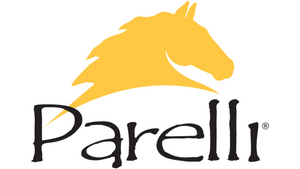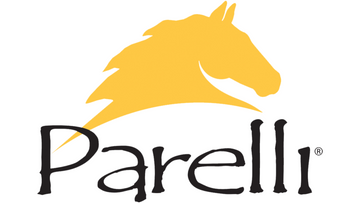Principle # 6 - Body Language is the Universal Language.
by Pat Parelli on May 01, 2024

I've often said, “I've got it, you've got it, dogs have it, horses have it.” And then, pointing up to the sky with one finger, I say, “Even E.T.’s got it.” It’s what makes that movie so adorable.
It could be that many people think animals are dumb because it says something about dumb animals in the Bible. But what that means is that they can't talk. While they can't speak a language orally, they do communicate with each other beautifully.
Some animals are very oral, like dogs and dolphins. But other animals like horses, deer, cattle, and sheep rely primarily on body language. They make sounds, of course. They whinny, snort, and do all kinds of things. But just think about this, if horses could scream or yelp like a dog, could you imagine the sounds they might make while being ridden?
Tom Dorrance taught me that horses are very good at perceiving danger, people, places, changes, and things and are particularly adept at judging distance and approach.
I remember being 12 years old, and there were a few horses in the pasture who didn’t like to get caught. Six or seven of us would get them cornered and get within ten feet of them. But once you got within four feet of them, they would burst through all of us. We all came out there with halters and lead ropes, buckets of grain, and carrots, but there's no fooling the horse. Horses know what we know, and they know what we don't know, but most people don't know what they don't know. And if the horse knows what you know and knows what you don't know, and you don't know what you don't know, then you’ve got a problem. You just don't know it yet.
Horses are nature in their finest form. They're simple, but they're not easy. The reason they're not easy is because they perceive the world in a more threatening way than we do. We see an open mailbox and say, “Somebody left the mailbox open.” They see the mailbox open and think, “That thing's going to eat me.” The horse knows the only difference between him, and a squirrel is 1200 pounds. They both know that they taste good and live in a world where self-preservation can come up quickly.
They also live in a world where they must make decisions and habituate certain things. For example, horses raised in a pasture next to a freeway realize that all those vehicles going by, no matter how noisy they are, are just a part of the environment and should be ignored. Horses not habituated to those sounds will perceive that noise differently and react much differently.
As we study the nature of horses and learn how they feel, think, act, and play, we better understand how to interpret their body language. It’s very important as the leader to be mentally, emotionally, and physically collected and to manage our energy through time and space so we can manage their energy through time and space.
It’s also imperative that we remember that we have tall bodies, and horses have long bodies. Foals know from their birth that their mom has a longer body than they do. This long body logic kicks in very quickly, and they learn to synchronize with her mentally, emotionally, physically, and even with her spirit. They pay attention to her body language. They go when she goes, they slow when she slows, and they stop, and she stops. We want to achieve this same degree of unity and communication with our horses by utilizing and controlling our body language, whether playing on the ground or riding.
It’s also helpful to observe, remember, and compare how horses treat each other. They're all friends, but there is a pecking order. They use their expressions, pin their ears, swish their tails, stomp their feet, and move their bodies in many ways to dominate or be dominated by other horses.
I see a lot of students trying to play with their horses on the ground, and they have the same look on their faces when they ask the horse to back up as when they ask the horse to come toward them. I often just say, lean over a little bit and pretend you're calling a puppy. You won’t believe how your horse suddenly perks his ears forward when he realizes that you want him to come to you and that you’re happy when he comes. Similarly, try getting a growly look on your face when you want your horse to back up. If your horse invades your space, ask him to back up just like the cranky alpha mare does with a look and a “kick.”
By using a Carrot Stick, which is actually a herding stick, you’re lengthening your body, which enables you to use long body logic. Not only is it effective, but it also helps change how our horses perceive us. Horses start to see us not just as pedestrians but also as equestrians. The secret is body language and, specifically, long body logic.




